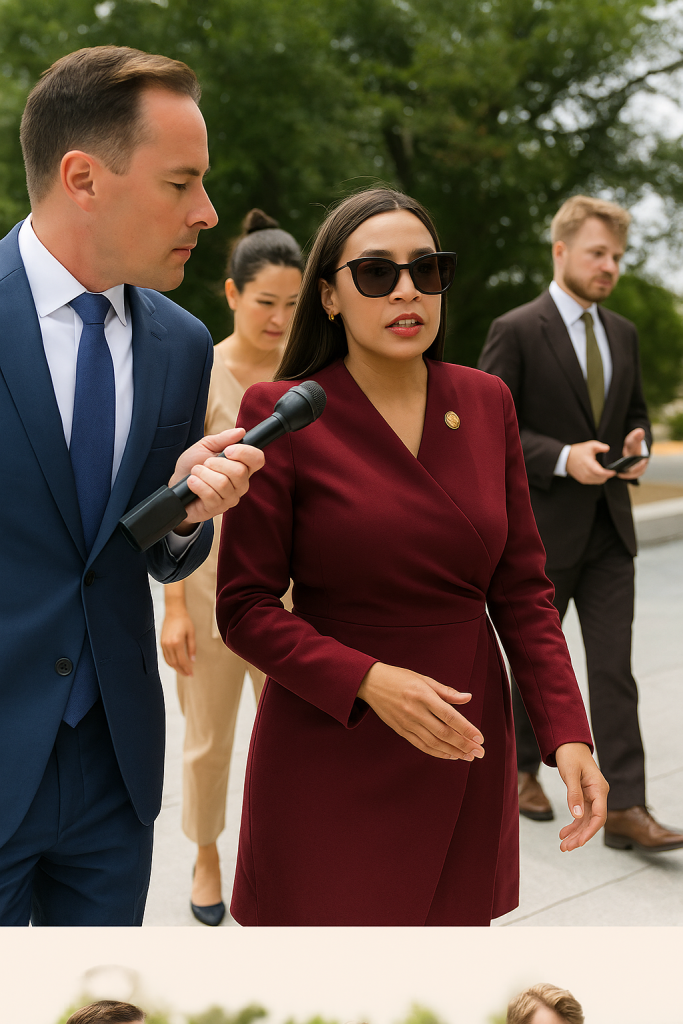In a politically charged atmosphere, Congresswoman Alexandria Ocasio-Cortez (AOC) was recently confronted on the contentious issue of voter ID laws, sparking renewed debate over election integrity and access. Meanwhile, veteran lawmakers Jerry Nadler and Jamie Raskin weighed in on former President Barack Obama’s recent exhortation for Democrats to adopt a more resilient posture in the face of mounting political challenges.
Confrontation Over Voter ID
AOC, who has long been a vocal opponent of strict voter ID requirements, was challenged by constituents and critics during a public event. The confrontation highlighted the sharply divided public opinion on the role of voter identification laws in American elections. Proponents argue these laws protect against voter fraud, while opponents like AOC maintain that they disproportionately disenfranchise minority and vulnerable populations, effectively suppressing voter turnout.
During the exchange, AOC reiterated her stance that expanding access to voting should take precedence over restrictive measures that create hurdles for eligible voters. She emphasized the necessity of federal legislation that would standardize voting rights protections to prevent what she described as “state-by-state erosion” of ballot access.
This episode underscored the complex dynamics within the Democratic Party itself, where different factions wrestle over how to address election security without alienating core constituencies. The voter ID debate is not just legislative but symbolic, reflecting broader struggles over democracy and representation ahead of upcoming elections.
Nadler and Raskin React to Obama’s Tougher Tone
In the wake of these grassroots debates, two influential Democratic lawmakers—Representatives Jerry Nadler and Jamie Raskin—publicly responded to former President Barack Obama’s comments urging Democrats to “toughen up.” Obama’s remarks came amid ongoing frustrations over political setbacks and rising partisan hostility, encouraging members of his party to maintain resolve and adopt more assertive strategies.
Jerry Nadler, a senior member of the House Judiciary Committee, expressed agreement with Obama’s sentiment, emphasizing the importance of resilience in navigating today’s polarized political environment. Nadler noted that Democrats must be prepared to “stand firm on principles and fight decisively” to protect voting rights, civil liberties, and progressive policy goals.
Jamie Raskin, known for his leadership in constitutional issues and democracy reforms, echoed a similar message but added nuance, suggesting that “toughening up” should not undermine inclusive politics or alienate voters who are skeptical of partisan rhetoric. Raskin stressed that strength in politics must be balanced with empathy and a commitment to broad-based mobilization, especially as electoral battles intensify.
Broader Implications for the Democratic Party
The convergence of these events paints a revealing picture of the Democratic Party’s current challenges and internal debates. On one side, grassroots activists and progressive figures like AOC continue to push for expansive voting rights and inclusive policies. On the other, seasoned lawmakers and party strategists heed calls from leaders like Obama to adopt a more assertive, united front against what they perceive as encroachments on democracy from opponents.
As voter ID discussions reverberate across states with diverse political climates, and as party leaders recalibrate their strategies, the ongoing discourse highlights the delicate balancing act Democratic politicians face. They must simultaneously energize their base, protect voter access, and build broad coalitions capable of overcoming deepening partisan divides.
With pivotal elections looming, how Democrats handle these internal tensions could well shape the trajectory of American democracy in the years ahead.



